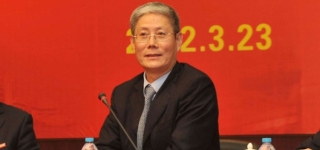

Joachim Coens Chairman Global Institute of Logistics Europe
Joachim Coens Chairman-Managing Director of the Bruges-Zeebrugge Port Authority succeeded Rafael Aznar CEO of the Port of Valencia as Chairman of the Institute’s European Chapter in 2011. His vision is to build on the work done by previous Chairs in establishing the role of the Port Authority as central to the global supply chain. The apex of his Chairmanship saw the establishment of the CHAINPORT concept in 2013.
Joachim Coens graduated as civil engineer (construction) at the University of Louvain (Belgium) and specialised at the Technical University of Delft (the Netherlands).He began his career supervising several harbour building projects for the Besix Group but since 1995 he has been first alderman for finances and public works of the city of Damme, responsible for culture and local economy. That same year he was elected as a Representative to the Flemish Parliament where he sat on several commissions. He is a reserve officer in the Belgian Navy.
He resigned from this on 15 March 2001 in order to be appointed as Chairman-Managing Director of the Bruges-Zeebrugge Port Authority. He is also the chairman of Portconnect and the Consultation Council of the Port of Brugge-Zeebrugge and a member of the boards of, among other organisations, Portinvest, Waterwegen en Zeekanaal nv, VOKA (Chamber of Commerce) and Archonaut, as well as the Flemish Port Commission, the Federal Commission for the Port Policy, Promotion Inland Navigation Flanders and the Regional Social-Economical Consultation Commission.
Mr Coens is married with two daughters, Sofie and Anna and two sons, Felix and Victor.
The Port of Zeebrugge is in an ideal location to serve the markets of continental Europe as well as the British Isles. It is a young seaport with modern port equipment capable of accommodating the largest ships. The present structure of the port dates from as recently as 1985.
With the emergence of the roll-on/roll-off techniques, containerisation and the increase in the scale of the ships, the Belgian government was convinced in the seventies to develop the coastal port into a deep sea port. An extensive outer port, a new sea lock with entrance to an inner port gave the Port of Zeebrugge new impulses in the years that followed. As a result, total cargo traffic tripled from 14 million tonnes in 1985 to 45 million tonnes in 2009.
The port of Zeebrugge is also one of the fastest growing ports in the range of ports between Le Havre and Hamburg, which together handle more than a billion tonnes of cargo a year. Almost every product the consumer finds in the shops comes through these ports. Zeebrugge has become, in barely a couple of decades, one of the most important entry ports to the European market.
Zeebrugge has gradually developed itself into a versatile port, which does not just focus on European roll-on/rolloff traffic. The coastal port is also important for intercontinental (container) traffic, container feeder traffic, conventional cargo, liquefied natural gas, cruises and last but not least traffic of new cars. In this section Zeebrugge even takes pole position in the world. The unit loads, roro and container traffics, take up three quarters of the total cargo throughput.
Zeebrugge is a deep-sea port and guarantees sufficient water depth in the access channel to the outer port and along the quays, because of which the continually larger container ships can be loaded and unloaded at any time. This competitive advantage means that the largest shipping companies in the world have Zeebrugge on their sailing schedule. Several world-renowned container operators have invested substantially in the port infrastructure.
In combination with a wide range of intercontinental services and good hinterland connections, Zeebrugge is especially suited for intercontinental companies to organise their European or worldwide distribution. In the meantime, quite a few companies have invested in logistic centres. From here they add value to their cargo before distributing throughout Europe. Zeebrugge has grown from a pure transit port to a logistic platform. The role of Zeebrugge as engine of the regional economy is growing. Today, 28,000 people have a job, directly or indirectly, thanks to the port.
PORT OF ZEEBRUGGE HOMEPAGE
European Chapter Chairman: Mr. Joachim Coens
Email: Ms. Anne Glas – ag@mbz.be
Tel: +32 (0) 50 54 33 15
Address:
Port of Zeebrugge,
Vandammehuis,
Isabellalaan 1,
B-8380 Zeebrugge,
Belgium
Telephone:
+32 (0)50 54 32 11
Email:
mbz@zeebruggeport.be
FORMER CHAIRMEN

 JERRY BRIDGES
JERRY BRIDGES
 RAFAEL AZNAR
RAFAEL AZNAR  PAUL GOLDSBROUGH
PAUL GOLDSBROUGH